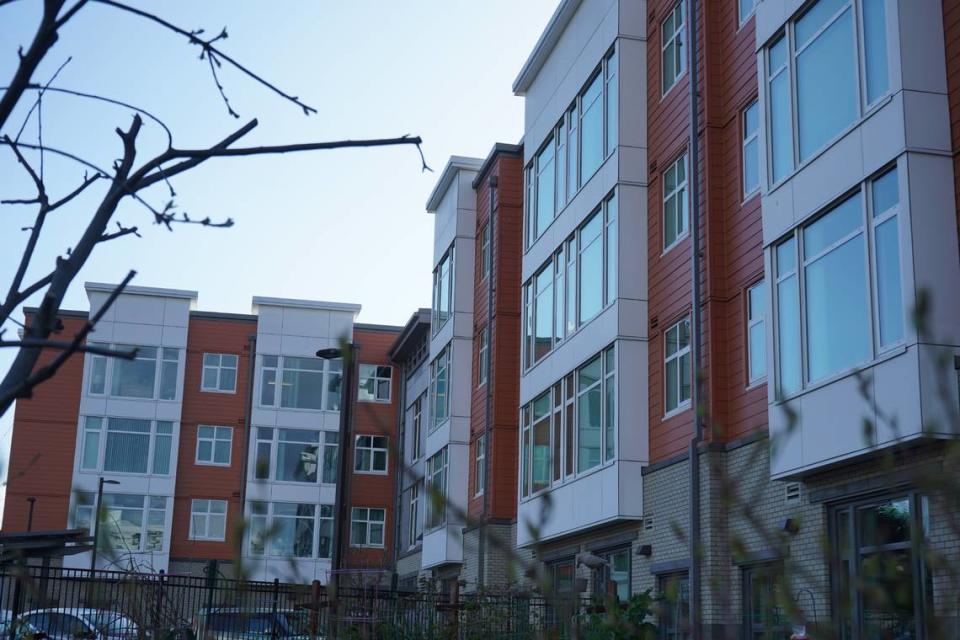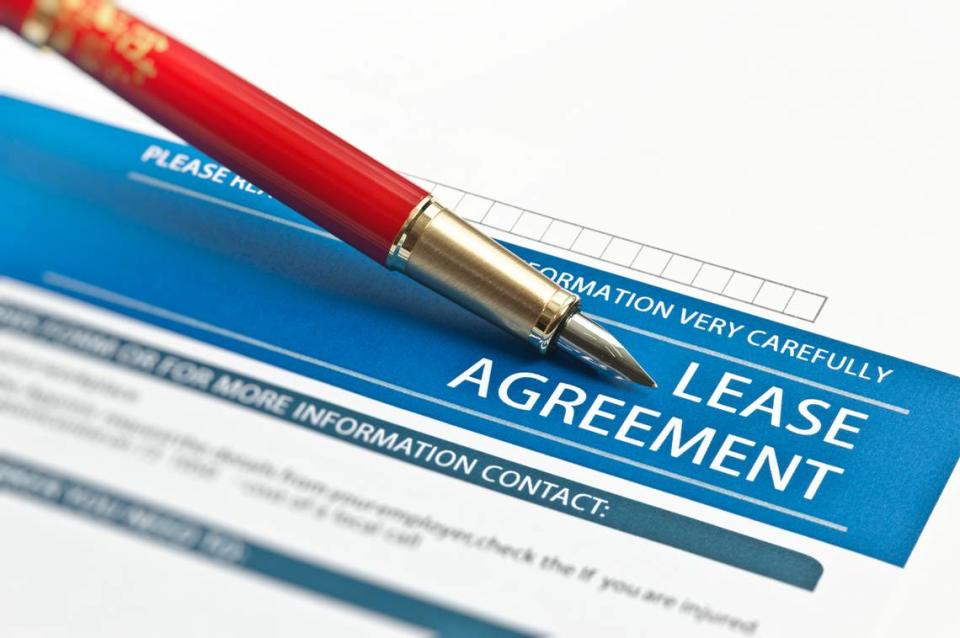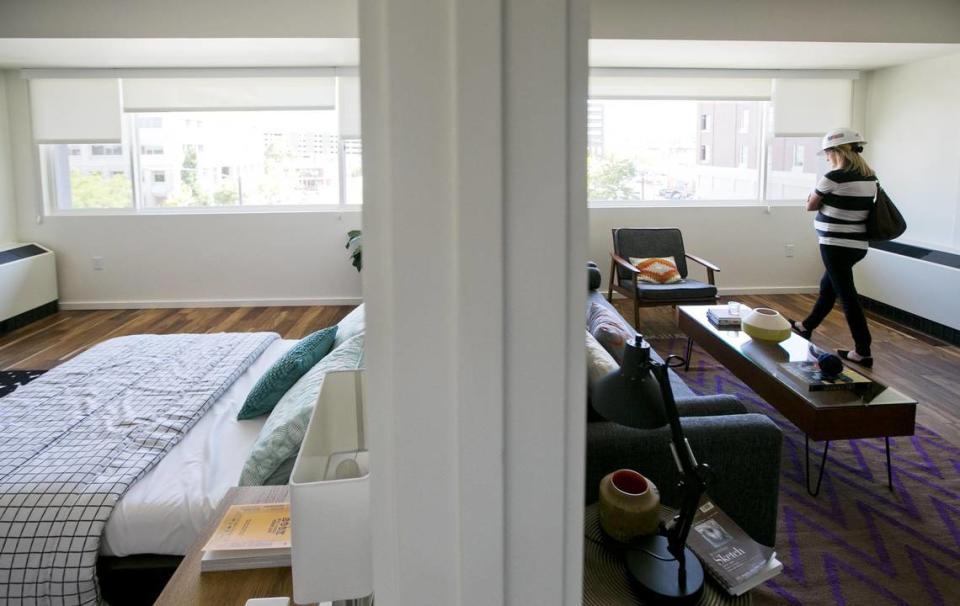Your housing horrors questions: What should WA rental agreements say about deposits, fees?
*Editor’s note: In response to reader questions and concerns regarding housing conditions in Washington state, the Northwest Service Journalism team and Bellingham Herald staff have teamed up to offer insight into housing horrors plaguing current renters. This is the first of a series, reader questions for future stories can be submitted at the bottom of this article.
When looking for your ideal rental in Washington state, there are so many factors adding to the cornucopia of associated stress. You have to know your must-haves, your deal-breakers and your budget in mind, all while knowing and protecting your rights as a renter. Then comes the process of filtering through available rentals, touring and applying. It takes time, energy, and money.
How are renters supposed to balance all this and pay the required fees along the way, while sussing out any attempts to violate your renters rights? Use this guide as a breakdown of fees and deposits, plus what they can and can’t be used for, according to the Revised Code of Washington.
Renters have more rights than people realize. Here are some of them:
Rental fees, common deposit issues
Across the state, readers have contacted McClatchy staff about landlords illegally keeping security deposits, raising rent exponentially and taking advantage of tenants who don’t stand up for themselves.
Since many people do not have the time, energy or resources to file in small claims court, it’s difficult to determine the exact number of people whose fees and deposits have been illegally retained.
But there are resources outside of small claims court:
Local advocacy groups - look for other tenants rights organizations
Dispute resolution centers - offer free or low-cost mediation in most Washington counties
Local legal advocates - professionals connecting locals through legal processes, often offering free services for low-income individuals

What is a screening fee?
When vetting potential renters, landlords can screen for rental eviction, credit histories and criminal backgrounds. Screening fees fund this report, whether done through an outside company or by the landlord.
By law, the landlord must tell you in writing that they are running the report, everything the report will include and what would lead to a denied application. You cannot be charged a fee in excess of report costs. A landlord that breaks either of these rules can be sued.
If you are denied as a tenant because of the report, the landlord also must tell you their reasoning in writing. If you think the rejection was unfair, you can file a complaint in small claims court.
What is a security or damage deposit?
Around your move-in, the landlord will collect a security deposit, which can be used to cover damages or unpaid rent. This can also be used to cover your last month’s rent, but only if agreed upon in writing by both parties.
Most rentals will come with a security deposit. When you pay this deposit, your landlord is required by law to give you a receipt (if there are multiple deposits, a receipt for each), a written rental agreement, a written checklist or statement on the unit’s condition signed by both parties, and the name and address of where the deposit is kept in writing.

If you don’t get a checklist from your landlord, you can file to get the deposit back plus any court costs and fees.
What happens to your deposit when you move out?
When you move out, the landlord can only keep some of the security deposit if you damaged the unit or owe rent. They have to act within 30 days of you moving out to either send back your deposit or a written communication explaining why any amount of the deposit is kept.
What if you owe money?
If you owe the landlord more than you deposited, the landlord may be able to sue you. If the landlord uses your deposit incorrectly, you may be able to file to keep it.
What can a damage deposit be used/not used for?
Alternatively, your landlord may opt for a “damage deposit,” which can only be used to cover damages, not back rent. You have the right to request an installment plan for a deposit. In Washington state, any non-refundable deposit paid by renters must be adequately explained in the rental agreement signed by both parties.
Neither type of deposit can be used for standard upkeep, such as wear from ordinary use. Deposits can be used for holes, broken windows, excessive mess and other significant damage, not for worn flooring and chipped or faded paint.
How do you protect yourself from losing a damage deposit?
Your deposit should only be applied to damages caused by you or your guests. You should never be charged for damage caused by natural disasters, unknown people or former tenants. To avoid being charged for damage that was caused before you moved into the unit, tenant advocates recommend documenting the state of your rental by taking photos and videos during a walk-through.
Why is taking photos and writing things down crucial?
Documentation is a vital aspect in pleading a case about a disputed deposit, according to Washington Law Help, which is funded by the Legal Services Corporation and operated through the Northwest Justice Project. In order to increase your odds of reaching a resolution outside of court or winning a case in small claims court, document as much as you can about your rental experience.
Media proof like photos and video taken on a cell phone, written agreements and statements, and receipts are all significant documentation.
Will you owe a cleaning fee?
When you move out, you may also be charged a cleaning fee, depending on the rental agreement. This won’t be covered by deposits and will not be returned regardless of how clean or messy you were.
What is an application/holding fee?
Some landlords will accept a holding fee, ensuring they won’t rent to someone else before you move in. This cannot be more than 25% of your first month’s rent.
A holding fee cannot be kept if the landlord decides not to rent to you.

If you back out and decide not to move in, the landlord can keep the holding fee. If you do move in as agreed, the landlord must apply the fee toward either your security deposit or your first month’s rent. Landlords who wrongly keep this fee can be sued.
In Washington, it’s illegal for a landlord to accept fees from prospective tenants in order to be placed on a wait list for consideration. Holding fees must go toward holding the unit, not a spot on a wait list.
Last month’s rent paid in advance
As the name suggests, any money you pay in advance for last month’s rent must be used for your last month of rent. It cannot be applied to damages, deposits or anything else. This money has to be refunded if you give proper notice of an early move-out, or if you move out early at the landlord’s request.
Do you have questions, concerns or a story about housing in Washington? The Northwest Service Team wants to hear from you:

